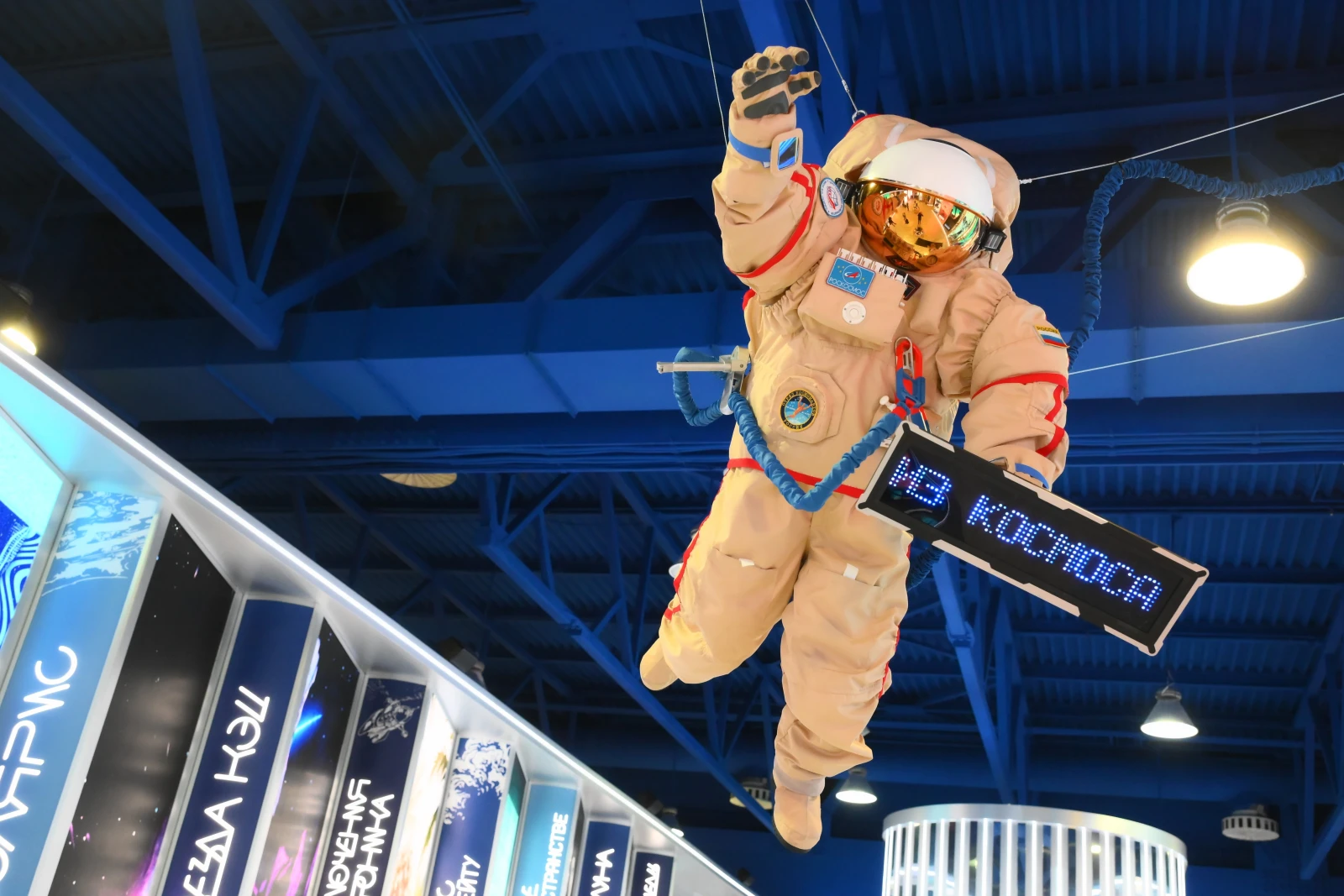Outer space exploration discussed at the "Inventing the Future" Symposium

On November 6, the International Symposium "Inventing the Future" at the National Centre RUSSIA hosted events dedicated to exploring outer space, examining the role of the Universe in people's daily lives and in art.
During the panel discussion "Space for Humanity: Technologies and New Horizons," experts discussed the challenges humanity currently faces in this field.
"A crucial step for the global community is to move beyond the horizon of existing space technologies. This requires new approaches and solutions from us. The industry's focus today is on the following priorities: creating the Russian orbital station, transitioning to an industrial model for spacecraft production, continuing the manned space program, and implementing a nuclear space energy project," said Director General of the Roscosmos State Corporation Yuri Borisov in his opening remarks.
First Deputy Chairman of the State Duma Committee on Economic Policy Denis Kravchenko emphasized that the development of the space industry holds strategic significance for the country. One way to achieve these goals, according to the deputy, is by fostering partnerships between the government and private investors.
"Investments in space exploration stimulate technological production and form unique personnel capable of solving the most complex challenges. Set ambitious goals, and we will support you on both political and financial levels," he added.
Another key objective for the space industry is implementing the Lunar Program. As noted by academician Lev Zelenyi, Scientific Director of the Space Research Institute of the Russian Academy of Sciences, Earth's satellite is of interest to scientists due to its potential, including its abundance of rare-earth resources. According to the expert, lunar exploration should become part of the national idea.
"We have to actively explore the Moon. It interests us with its rare-earth resources, gravitational potential that could make it our spaceport, and space climate, which simplifies the study of stars and planets," said Lev Zelenyi.
Meanwhile, Victor Mukungunugwa, Head of the Engineering Department at Zimbabwe's National Space and Geospatial Agency (ZINGSA), emphasized the importance of science fiction as a source of inspiration and caution for modern society.
"Russia is a country with a rich heritage of science fiction, which is crucial to preserve today. We live in an era of rapid development in the fields of artificial intelligence, genetic engineering, space exploration, and virtual reality, blurring the lines between fiction and reality. Science fiction should guide us toward goals we can achieve and warn us of what to avoid," noted Victor Mukungunugwa.
Other panel participants included Alexander Romanov, Deputy Director General of JSC "TsNIIMash"; Yusef Hesuani, co-founder and managing partner of 3D Bioprinting Solutions; Sergei Pereslegin, scientific director of the Sociosoft project, Director of the Knowledge Management Centre of IRIAS, a leading Russian expert in foresight, physicist, sociologist, military historian, science fiction researcher, and publicist; while the session was moderated by Dmitry Shishkin, Director of the Administrative Department of the Roscosmos State Corporation.
Another event addressing space exploration was the meeting "Space as a Source of Inspiration." Experts, including science fiction writer Boris Dolingo, Director of the "Russian Concert Agency" Dmitry Grinchenko, General Producer of Prospect Production and producer of the youth science fiction series "Teens in Space" Dmitry Lunev, Hungarian journalist and space commentator Levente Sitkei, and others, discussed the role of art in popularizing space topics and exploring space among younger generations. They shared views on the development of space tourism and on how expositions, festivals, and other cultural events related to space inspire people.
The International Symposium "Inventing the Future" is being held from November 4 to 6. Participants include scientists, researchers, futurists, science fiction writers, and representatives from government bodies from 101 countries, including Russia, India, Italy, Iran, China, the UAE, Serbia, the USA, and France. The program features over 60 sessions across four tracks: "Future of Human," "Future of Technology," "Future of Multipolar World," and "Future of Civilizations." The program and event broadcasts are available at the website future.russia.ru/en.
The International Symposium "Inventing the Future" is the first event of the National Centre RUSSIA, which was established on July 1, 2024, by the order of President of the Russian Federation Vladimir Putin. The Centre aims to preserve the legacy of the International RUSSIA EXPO and showcase the achievements of the country and its citizens. The work of the Centre involves federal authorities, state companies, corporations, and regions.
